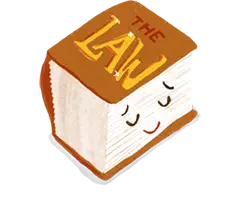Topic
Transport and travel
This page contains different parts of laws about Transport and travel.

Important laws about Transport and travel
Weights and Measures Act 1987
When you can use different ways of measuring things instead of the metric system
9: Exceptions to obligations to use metric system of weights and measures
Conservation Act 1987
Rules for land near railway lines that was once owned by the government
24K: Provisions applying in relation to land vested under New Zealand Railways Corporation Restructuring Act 1990
Conservation Act 1987
Walking near railway lines: what you can and can't do
24L: Public access rights
Real Estate Agents Act 2008
What happens if you don't pay a fine or costs on time
99: Non-payment of fines or costs
Telecommunications Act 2001
Introduction to the Telecommunications Act 2001: a law about how phone and internet services work in New Zealand.
4: Overview
Telecommunications Act 2001
Police can get a special warrant to search for things if someone breaks telecommunications rules.
16: Application of section 98A of Commerce Act 1986
Telecommunications Act 2001
Talking and meeting about telecommunications issues
30ZA: Consultation or conferences
Telecommunications Act 2001
Preparing leftover terms for telecommunications rules
30ZB: Preparation of residual terms determination
Telecommunications Act 2001
What 'Interpretation' means in the Telecommunications Act: explaining key words and phrases.
69ZA: Interpretation
Telecommunications Act 2001
Access providers must share information, but this rule is no longer in use.
69ZC: Information disclosure by all access providers
Telecommunications Act 2001
Rules about what information the Commission must share are explained here
69ZD: Miscellaneous provisions relating to Commission's information disclosure requirements
Telecommunications Act 2001
The Commission used to have to publish summaries of information.
69ZG: Commission to publish summaries
More laws about Transport and travel
About this project
What is this project?
This project is an experiment to take difficult language, and make it easier to read and understand for everyone.
How do we do this?
What's our process for taking the law and turning it into plain language?
Why is the law written like it is?
Laws are often hard to read. They use a lot of words and language we don't usually use when we talk.
Should we use AI for this?
What are the good and bad sides of using AI?
Is this information the actual law?
We hope that this information will help people understand New Zealand laws. But we think that it's important you talk to someone who understands the law well if you have questions or are worried about something.
You can talk to Community Law or Citizen's Advice Bureau about your rights.
Remember that AI can make mistakes, and just reading the law isn't enough to understand how it could be used in court.
You can talk to Community Law or Citizen's Advice Bureau about your rights.
Remember that AI can make mistakes, and just reading the law isn't enough to understand how it could be used in court.




